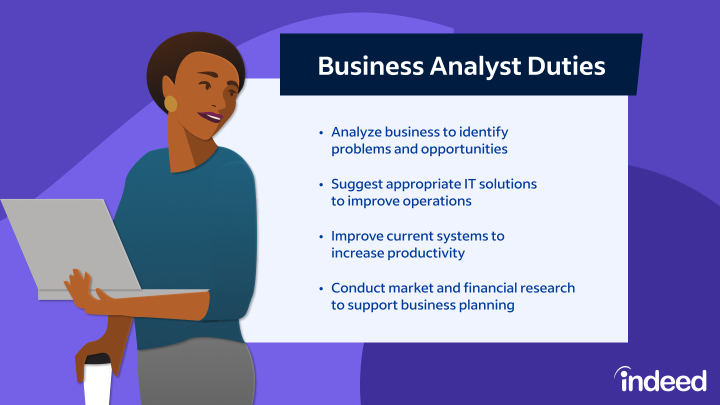The demand for skilled business analysts is on the rise. These professionals act as a bridge between business stakeholders and technical teams, ensuring projects meet both business needs and technical feasibility. While technical knowledge is crucial, business analysis course must also emphasize the development of soft skills.
To succeed in the position, candidates must possess these interpersonal and communication abilities. The significance of soft skills for business analysts is examined in this article, which also provides helpful tips for implementing their growth in business analyst education programs.
Why Are Soft Skills Important for Business Analysts?
Business analysts collaborate with a wide range of stakeholders, from executives and project managers to subject matter experts (SMEs) and developers. They gather requirements, analyze data, document processes, and recommend solutions. Soft skills are critical for navigating these interactions effectively.
Here’s a closer look at why soft skills are so important:
- Effective communication of complicated material to both technical and non-technical audiences is a need for business analysts. This entails paying attention while actively listening, producing quality documentation, and effectively presenting findings.
- Collaboration: Successful business analysts work collaboratively with diverse teams. They must build rapport, foster trust, and navigate potential conflicts.
- Resolving Issues: Throughout the course of a project, business analysts run across difficulties. They can recognize problems, examine underlying causes, and create workable solutions when they possess strong problem-solving abilities.
- Critical Thinking: Business analysts need to analyze requirements, identify potential roadblocks, and evaluate solutions. Critical thinking allows them to make sound decisions based on logic and evidence.
- Negotiation: Business analysts often need to negotiate with stakeholders to find common ground and ensure project success. Negotiation skills help them reach mutually beneficial agreements.
By honing their soft skills, business analysts become more effective communicators, collaborators, and problem solvers. This, in turn, leads to increased project success and overall business value.
Strategies for Integrating Soft Skills Development in Business Analyst Courses
Now that we know how important soft skills are, let’s look at how business analyst courses might include their development.
Here are some practical strategies:
- Case Studies and Role-Playing: Business analyst courses can incorporate case studies that deal with real-world scenarios where soft skills are essential. Students can role-play different stakeholders and practice communication, negotiation, and conflict resolution techniques.
- Group Projects: Collaborative group projects encourage students to develop teamwork, communication, and problem-solving skills. By working together on a project, students learn to share ideas, manage conflict, and achieve a common goal.
- Presentations: Regular presentations throughout the course allow students to hone their public speaking skills and practice presenting complex information in a clear and concise way. Providing feedback on delivery style and content can be highly beneficial.
- Communication Skills Workshops: Courses can include dedicated workshops focused on communication skills development. These workshops can cover topics such as active listening, writing effective emails and reports, and giving constructive feedback.
- Soft Skills Assessments: Consider incorporating assessments that measure students’ soft skills at the beginning and end of the course. This allows instructors to track progress and identify areas where students may need additional support.
Additional Tips for Soft Skills Development
Here are some additional tips instructors can use to support soft skills development:
- Establish a Supportive Learning Environment: Encourage students to take chances, ask questions, and participate in class discussions in a setting where they feel safe doing so. This promotes active learning and gives pupils a secure environment in which to hone their soft skills.
- Provide Individualized Feedback: Offer constructive feedback on students’ communication, collaboration, and problem-solving skills during presentations, group projects, and other course activities.
- Invite Guest Speakers: Consider inviting guest speakers who are experienced business analysts to share their insights on the role and the importance of soft skills.
- Encourage Self-Reflection: Throughout the course, ask students to consider how their soft skills have changed. Urge them to make objectives for their own personal growth and to identify areas that need work.
Benefits of Integrating Soft Skills Development
Businesses as well as individual individuals may gain a great deal from investing in the development of soft skills for business analysts. Let’s explore some of the key advantages:
- Increased Project Success Rates: Strong communication, collaboration, and problem-solving skills enable business analysts to effectively manage stakeholder expectations, identify and address challenges early on, and lead teams towards successful project completion.
- Better Client Relationships: Business analysts that possess good soft skills are better able to forge stronger bonds with their clients. In addition to building confidence, good communication and attentive listening guarantee that projects are in line with the demands of the customer
- Enhanced Team Dynamics: Soft skills contribute to a more positive and productive work environment. Collaboration skills enable business analysts to work effectively with diverse teams, while conflict resolution skills help them navigate disagreements constructively.
- Greater Adaptability: The business landscape is constantly evolving. Business analysts with strong soft skills are more adaptable and can adjust their communication and collaboration styles to thrive in different situations.
- Leadership Potential: Soft skills are essential for leadership roles. By developing their soft skills, business analysts can position themselves for career advancement and take on leadership positions within their organizations.
The Future of Business Analyst Soft Skills
As the business world continues to become more complex and interconnected, the demand for business analysts with well-developed soft skills will only grow. Business analyst courses that prioritize soft skills development will be well-positioned to prepare students for successful careers in this dynamic field.
Here are some potential future trends in soft skills development for business analysts:
- Focus on Emotional Intelligence: Emotional intelligence (EQ) encompasses self-awareness, social awareness, self-regulation, and relationship management. As business analysts navigate increasingly complex stakeholder relationships, EQ will become an even more critical soft skill.
- Emphasis on Agile Methodologies: Agile methodologies, which focus on iterative development and collaboration, are becoming increasingly popular. Business analyst courses can integrate soft skills development into the context of agile practices.
- Incorporation of Technology: Technology can play a role in soft skills development. Online platforms can offer simulations and interactive exercises to help students practice communication, negotiation, and other soft skills.
Conclusion
Incorporating soft skills development into a business analyst course is an investment in the future success of both individual professionals and organizations. By equipping students with the soft skills they need to thrive in today’s business environment, business analyst courses can prepare graduates for rewarding and impactful careers.
Business Name: ExcelR- Data Science, Data Analytics, Business Analyst Course Training Mumbai
Address: Unit no. 302, 03rd Floor, Ashok Premises, Old Nagardas Rd, Nicolas Wadi Rd, Mogra Village, Gundavali Gaothan, Andheri E, Mumbai, Maharashtra 400069, Phone: 09108238354, Email: [email protected].




